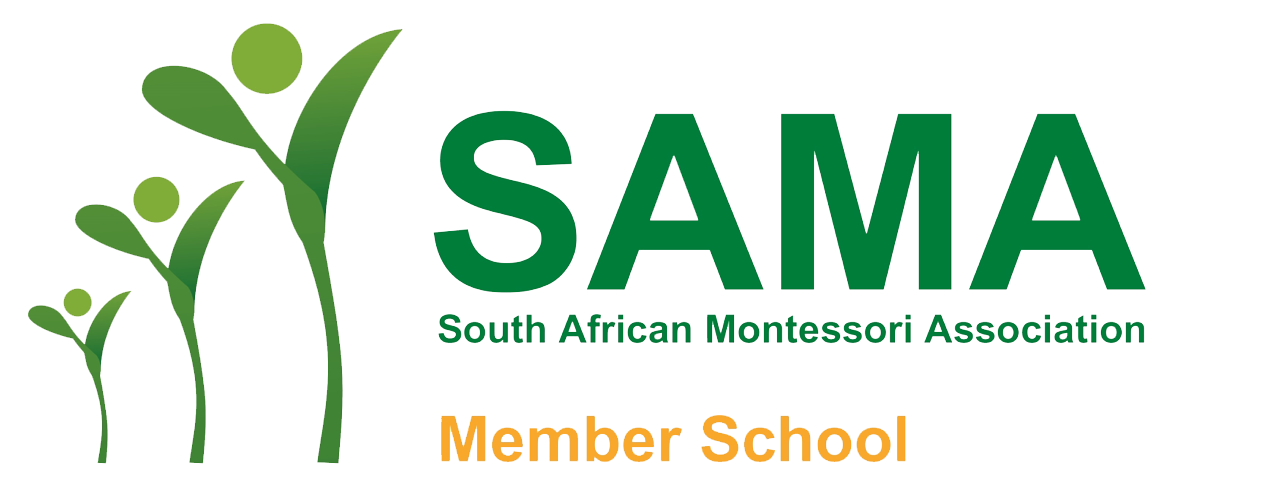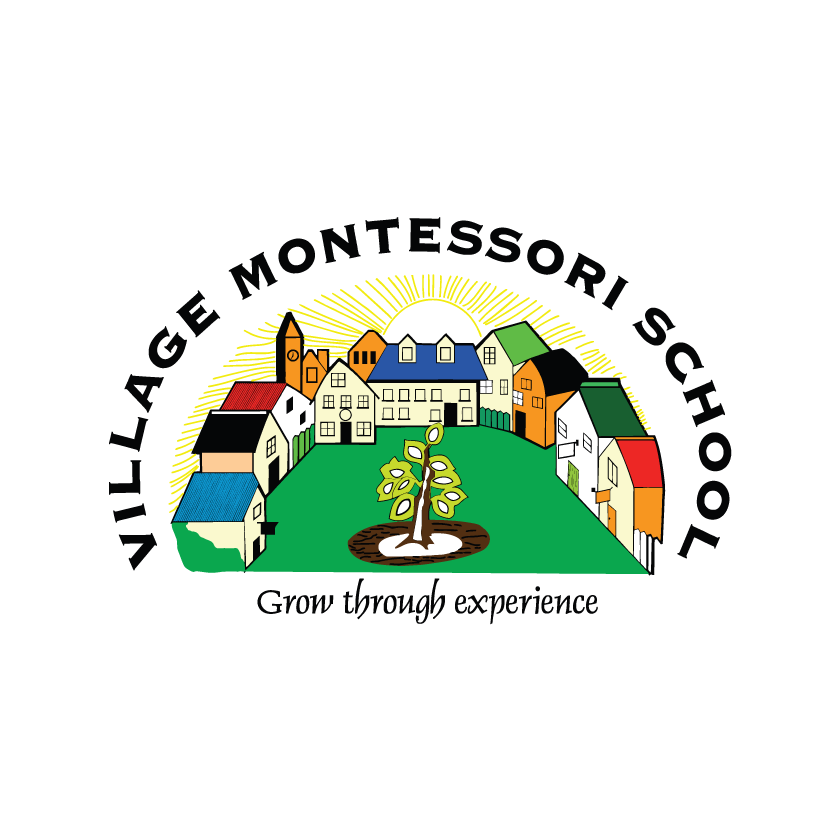About Montessori
History
Lyn Viljoen and Jane Slater established the school in Doringkloof in 1992. The initial pupil numbers were 24 children in the Pre-school and two children in the Primary School. In 1994 the school relocated to premises in Queen Street, Irene.
In the same year pupil numbers allowed us to register with the Education Department as an Independent Primary School.
In 1998 the decision was taken to relocate to Lyttelton Agricultural Holdings to accommodate more pupils and to provide a wider range of facilities.
Jane Slater left to establish her own school in Irene and the new property was bought by a Closed Corporation with members Lyn and Tony Viljoen and Marita Basson. In 2008 Marita emigrated to Australia.
Lyn and Tony Viljoen retired in March 2016 and the School was taken over by owners Nico and Daleen Koen who has been the Financial- and School Manager since 2004. Bhavna Bhagattjee is the Principal of the School since 2011. Bhavna is an experienced Montessori Directress and qualified Teacher spanning all developmental phase up to 18 years.
The High School was established in 2002 with two Grade 8 pupils and the first matrics completed High School in 2006. In August 2007 a fire destroyed the High School building and one of the Pre-school classrooms.
This resulted in the temporary closure of the FET phase (Grade 10 to 12) for 2009. In 2010 we reopened the Grade 10 to 12 phases and moved to the Cambridge University International Curriculum for all Grade 8 to 12 students.
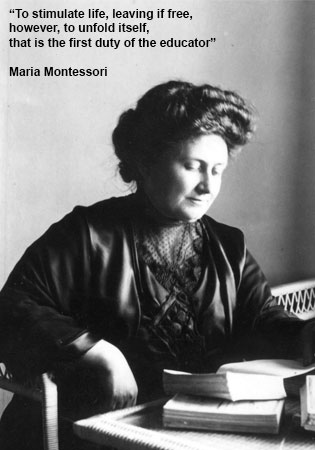
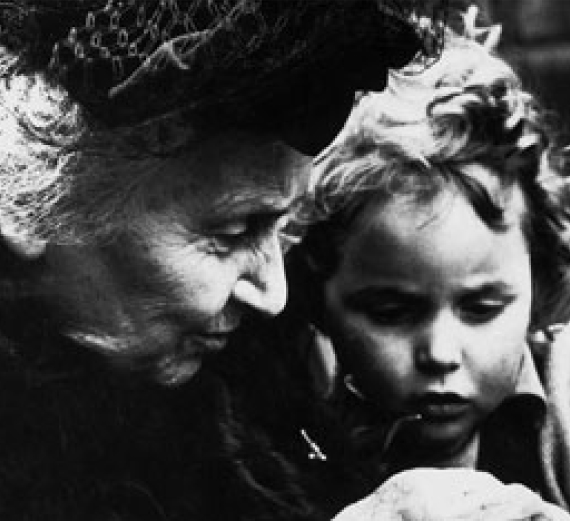
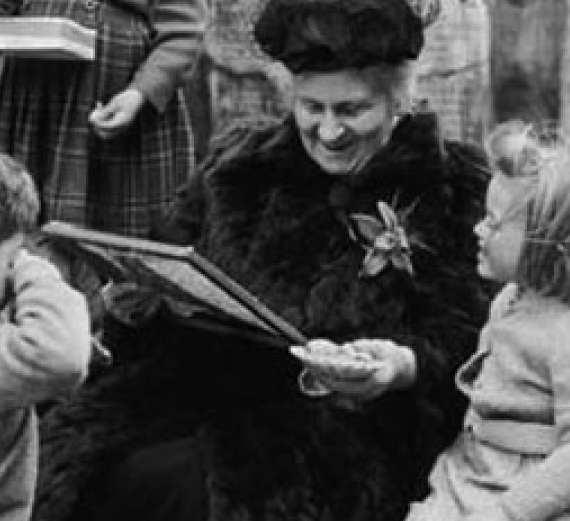
Montessori Philosophy
Our philosophy as Montessori educators is to strive to develop the self-esteem of each individual child.
What Montessori refers to as a ‘normalised child’ is a child that has a degree of self-confidence, who recognises his own worth and appreciates his shortcomings. When interested, a child becomes self-motivated. Self-motivation leads to becoming self-disciplined. When self-disciplined, a child engages in a process of mastery learning and develops his or her potential.
On an intellectual level we strive to develop the child’s understanding of academic subjects at his individual pace and so structure the learning environment to meet the needs of many children at different levels.
Socially, we strive to assist the child to interact with others with assertiveness, confidence and compassion. Conflict resolution is attended to on a daily basis.
The environment is structured to give the children ‘keys’ to the universe and satisfy his curiosity and thirst for knowledge while ensuring that the basic skills of reading, writing and mathematics are mastered.
As is appropriate for each age group, we encourage students to become aware of the major social, political, economic, environmental and ethical issues of our day.
Classes are small and consist of a mixed age group fostering a community spirit and ensuring that the needs of every child are met. The children learn to be responsible for their environment.
About Maria Montessori
Born in Chiaravalle, Italy, Maria Montessori became Italy’s first woman doctor.
She graduated from the faculty of medicine at Rome University in 1896.
After graduating she returned to the University to do research work at the psychiatric clinic. Children became her special interest. In 1900 she became Director of a school established by the National League for Retarded Children.
She set about observing the children and designing teaching materials best suited to their needs. Previously, these children, who had been abandoned as incapable of learning, began to show the ability to care for themselves.
Montessori later submitted these same children for the public examinations for normal children, with the astounding results that they achieved marks equal to or even above those gained by the normal school child in Italy at the time.
Montessori was so successful with her work for these children that she now became recognised as an educator rather than a physician.
In 1907 Montessori had her first opportunity to work with normal children when her first Casa dei Bambini (Children’s House) was opened in a tenement building in the San Lorenzo slums of Rome.
Here the children were provided with a prepared environment and were invited to explore and choose their own work, thereby fostering their independence.
Montessori was constantly experimenting, modifying and adapting her didactic material to suit the needs of the children. In 1909 the first Montessori Training Course was given. Private Montessori schools started being established in Europe. Montessori travelled extensively in the next few years giving lectures and training courses in England, Spain, Austria, Holland and the Americas.
Her method was endorsed and financially backed by people such as Alexander Graham Bell, Thomas Edison, Sigmund Freud, Ghandi and Piaget.
In 1934 friction arose between Montessori and Mussolini and when all her schools were closed in Germany and Italy by 1936, Montessori left Italy for Spain. Her stay there was cut short with the outbreak of the Spanish Civil War. She then fled to England. In 1939, at the age of 69, she arrived in India to establish a Montessori Training Centre. She was interned during the war years as an Italian National, but was given special permission to continue her work.
These war years caused Montessori to pursue a passionate quest for lasting peace through education. She was nominated three times for the Nobel Peace Prize and in 1950 she became the Italian delegate to UNESCO.
She died shortly before her 82nd birthday on May 6th 1952 in Holland.
Montessori Philosophy
Our philosophy as Montessori educators is to strive to develop the self-esteem of each individual child.
What Montessori refers to as a ‘normalised child’ is a child that has a degree of self-confidence, who recognises his own worth and appreciates his shortcomings. When interested, a child becomes self-motivated. Self-motivation leads to becoming self-disciplined. When self-disciplined, a child engages in a process of mastery learning and develops his or her potential.
On an intellectual level we strive to develop the child’s understanding of academic subjects at his individual pace and so structure the learning environment to meet the needs of many children at different levels.
Socially, we strive to assist the child to interact with others with assertiveness, confidence and compassion. Conflict resolution is attended to on a daily basis.
The environment is structured to give the children ‘keys’ to the universe and satisfy his curiosity and thirst for knowledge while ensuring that the basic skills of reading, writing and mathematics are mastered.
As is appropriate for each age group, we encourage students to become aware of the major social, political, economic, environmental and ethical issues of our day.
Classes are small and consist of a mixed age group fostering a community spirit and ensuring that the needs of every child are met. The children learn to be responsible for their environment.
About Maria Montessori
Born in Chiaravalle, Italy, Maria Montessori became Italy’s first woman doctor.
She graduated from the faculty of medicine at Rome University in 1896.
After graduating she returned to the University to do research work at the psychiatric clinic. Children became her special interest. In 1900 she became Director of a school established by the National League for Retarded Children.
She set about observing the children and designing teaching materials best suited to their needs. Previously, these children, who had been abandoned as incapable of learning, began to show the ability to care for themselves.
Montessori later submitted these same children for the public examinations for normal children, with the astounding results that they achieved marks equal to or even above those gained by the normal school child in Italy at the time.
Montessori was so successful with her work for these children that she now became recognised as an educator rather than a physician.
In 1907 Montessori had her first opportunity to work with normal children when her first Casa dei Bambini (Children’s House) was opened in a tenement building in the San Lorenzo slums of Rome.
Here the children were provided with a prepared environment and were invited to explore and choose their own work, thereby fostering their independence.
Montessori was constantly experimenting, modifying and adapting her didactic material to suit the needs of the children. In 1909 the first Montessori Training Course was given. Private Montessori schools started being established in Europe. Montessori travelled extensively in the next few years giving lectures and training courses in England, Spain, Austria, Holland and the Americas.
Her method was endorsed and financially backed by people such as Alexander Graham Bell, Thomas Edison, Sigmund Freud, Ghandi and Piaget.
In 1934 friction arose between Montessori and Mussolini and when all her schools were closed in Germany and Italy by 1936, Montessori left Italy for Spain. Her stay there was cut short with the outbreak of the Spanish Civil War. She then fled to England. In 1939, at the age of 69, she arrived in India to establish a Montessori Training Centre. She was interned during the war years as an Italian National, but was given special permission to continue her work.
These war years caused Montessori to pursue a passionate quest for lasting peace through education. She was nominated three times for the Nobel Peace Prize and in 1950 she became the Italian delegate to UNESCO.
She died shortly before her 82nd birthday on May 6th 1952 in Holland.
Mission Statement
The Village Montessori School is committed to provide a holistic education, which encourages understanding through a questioning mind. We aim to achieve this by:
- Allowing each child to develop intellectually at their own pace with the specially designed programme.
- Developing an awareness of the environment and the importance of their role in its stewardship.
- Fostering an awareness of their role and responsibilities in society.
The Montessori Method
The method employed is the Montessori Method as developed by Dr Maria Montessori. The basis of this method is the viewpoint that each child has an innate desire to learn. The prerequisite to learning taking place is the existence of a prepared environment where the child can be directed and not taught.
Montessori education recognises that each child learns with a unique style and pace. It is a child-centred, holistic approach acknowledging that the child’s development and education involves many aspects: physical, cognitive, social, emotional and moral/spiritual.
This means that, through our observations, we direct the children’s daily activities based on their own needs, strengths and developmental stages.
The Montessori environment changes and grows with the developmental needs of the child. The materials offer concrete, multi-sensory experiences, which actively engage children, correcting, giving feedback and increasing the child’s opportunities for self-directed work.
The materials contain many aims or goals and can often be explored at different levels. The environment allows children with quite different developmental needs to work and learn side by side with the same materials.
The Montessori environment contains a multi-age span. This fosters a sense of community in which children come to naturally help one another.
Every child’s progress is evaluated on a daily basis and their work is structured to ensure enough repetition to acquire the necessary skills. This allows us the flexibility to follow the needs of each child. Every child is valued for his/her contribution to the group. This gives all the children the chance to interact with a wide range of people and provides motivation and opportunities to share their skills and strengths. Our approach, whilst focussed on the individual child, must also nurture and support the group as a whole.
Montessori philosophy recognises that parents are an integral part of the child’s education and as such should assume equal responsibility in the process of the child’s education. Parental commitment to Montessori education is imperative.
The core set of values that guide our daily practice are:
Children are intrinsically motivated and their learning activities should incorporate movement and opportunities for independence.
Children will become self-disciplined when they are empowered to choose learning activities.
Each class is a respectful community of mixed-age learners.
Each class is a respectful community of mixed-age learners.
Indoor and outdoor classrooms are prepared learning environments.
Parents are partners that understand and support the purpose of the school.
The role of a Montessori teacher is:
to awaken the child's spirit and imagination
to encourage the natural desire for independence and self-esteem
to help children develop the kindness, courtesy, and self-discipline that will allow them to become a full member of society
to help children learn how to observe, question and explore ideas independently.
Learning how to work and play together with others in a peaceful and caring community is perhaps the most critical life skill that Montessori teaches.
As opposed to the traditional teacher, the directress is there to facilitate learning. She will provide the necessary opportunities for the child to learn. The directress will link the child to the environment by demonstrating the correct way to use and benefit from the equipment.
The core set of values that guide our daily practice are:
Children are intrinsically motivated and their learning activities should incorporate movement and opportunities for independence.
Children will become self-disciplined when they are empowered to choose learning activities.
Each class is a respectful community of mixed-age learners.
Each class is a respectful community of mixed-age learners.
Indoor and outdoor classrooms are prepared learning environments.
Parents are partners that understand and support the purpose of the school.
The role of a Montessori teacher is:
to awaken the child's spirit and imagination
to encourage the natural desire for independence and self-esteem
to help children develop the kindness, courtesy, and self-discipline that will allow them to become a full member of society
to help children learn how to observe, question and explore ideas independently.
Learning how to work and play together with others in a peaceful and caring community is perhaps the most critical life skill that Montessori teaches.
As opposed to the traditional teacher, the directress is there to facilitate learning. She will provide the necessary opportunities for the child to learn. The directress will link the child to the environment by demonstrating the correct way to use and benefit from the equipment.
The role of parents
Parents play a vital role in the development of “community” in Montessori schools.
Through their presence at school as volunteers and through a wide range of social events and celebrations, students get to know the families of their friends and grow up with a sense of being part of an extended community.
One of our common goals is to lead our students to explore, understand, and grow into full and active
